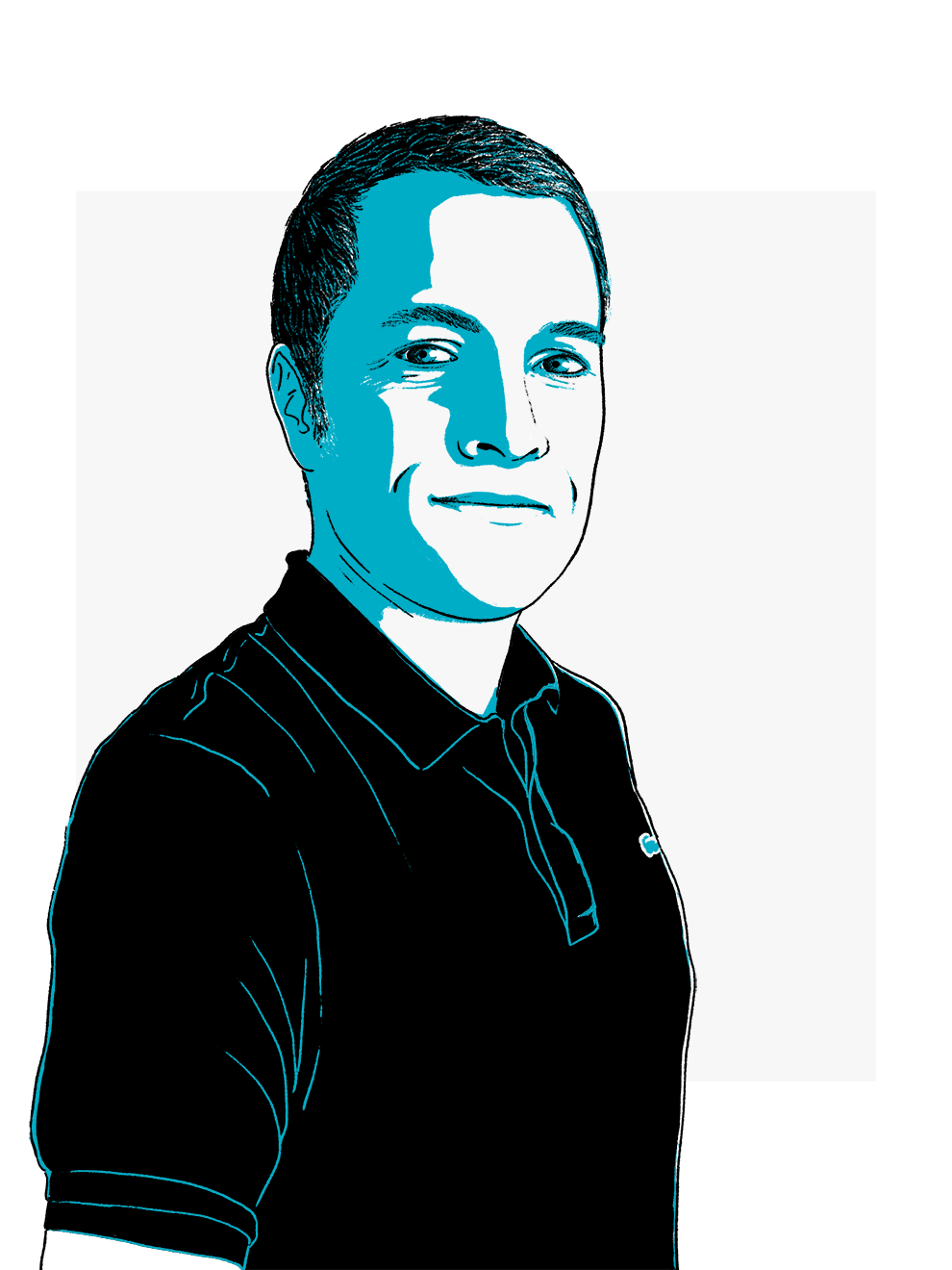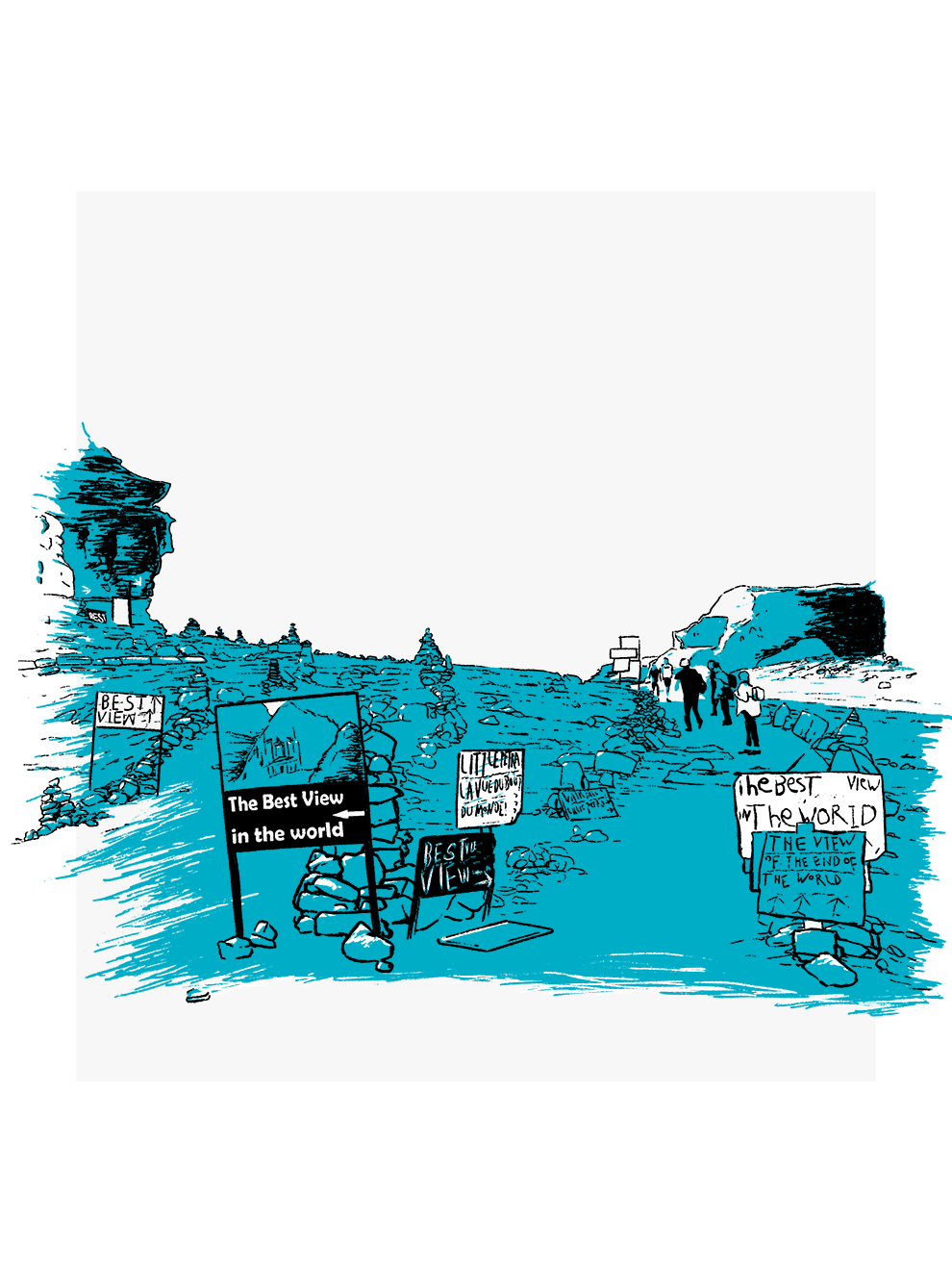Henrik Ahrens, at the Crossroads
Henrik is German, he works for France, lives in Oman and works with Lebanese, Iraqi, Saudi and Palestinian journalists. Have we lost you yet? Henrik explains it all, from his studies in Germany to his arrival at CFI as director of the Qarib project in 2021!

Henrik, how did you end up working for CFI in December 2021?
After studying political science, philosophy and Islamic studies in Berlin, I spent around a decade working in the world of media support and development. In particular, I worked at MICT (Media in Cooperation and Transition) as an editorial project manager and then as Country Director in Iraq for five years, before joining Internews Europe as MENA Project Director. It was in this latter role, during a project in Syria, that I established my first links with CFI. Starting in 2017, I completed several assignments as an independent consultant, still working in the field of media development. When I saw CFI was advertising a position as Director of the Qarib programme, I told myself the position was made for me: I speak French, I know Iraq well and the project fits nicely into my area of expertise. I applied and took over the reins of the project in December 2021!
Can you tell us about Qarib, the project in Jordan that you are now leading from Oman?
This is a project funded by the French development agency (AFD), which aims to support the media in Jordan, Lebanon, Iraq and Palestine. More specifically, the goal is to improve the representation of certain minorities and marginalised people in the public debate. At present, certain genders, ethnic groups and socio-cultural categories have been erased from the media in those countries. Our role is to give them better journalistic coverage and thereby contribute to improving social cohesion in the region: here, as everywhere, media outlets are key players in spreading values and representing identities; as such, they are powerful tools for social transformation. We are also working to improve the visibility of some subjects that still receive little coverage, or are not covered in depth: climate disruption and its effects on the environment, local governance, elections etc.
Could you give us a few examples of specific actions you have carried out with your team as part of this project?
We carry out a wide variety of actions on the ground: training journalists, organising competitions and calls for project proposals, providing financial support to enable our beneficiaries to cover certain events (such as COP27, for example), establishing a mentoring system, creating a community of media outlets to encourage the sharing of best practices etc. Our approach is based on the idea that each media outlet has very specific needs and that we must respond to them in as individual and appropriate a way possible. The financial and business aspect is also very important: the media outlets we support are independent and face difficulties remaining economically viable. We help them improve their operations to generate revenue, train them in digital marketing and work to change the legal framework of the countries in which they operate.
What is your greatest source of satisfaction in your day-to-day job?
First of all, I am very lucky, working with an incredible team of people who are deeply committed to the project, highly motivated and giving their best, both professionally and personally. So I know that I am surrounded by really good people. I also really like the multilingual and multicultural context in which we work: I work from Oman across four different countries and our daily life often involves a mixture of Arabic and English, as well as French when interacting with colleagues at head office. I like the open and fluid framework. However, my greatest source of satisfaction is seeing the positive impact of our work: a thank you from a journalist we support, an exceptional piece of journalistic output from beneficiary media outlets, a new subject that emerges etc. For me, these are valuable signs that show us that we are on the right track and that our actions really help.

What is the most difficult part of your day-to-day job?
Obviously, it is the political context. The four countries covered by the Qarib project are not known for being particularly relaxed in terms of freedom of the press or freedom of opinion. We have to deal with a number of constraints, restrictions and red lines, in contexts that are sometimes tricky in terms of security. That is the reality that we must accept. At a more operational level, we also have to deal with a certain amount of red tape, mainly due to the fact that the project relies on public funding. It is often time-consuming, but it is for a good cause!
What are your main takeaways from this project on a personal level?
Working on the Qarib project, I have learned how to manage a complex project on a regional scale with a large budget (€10 million). This is the first project of this magnitude that I have led from start to finish and, of course, it is very instructive. I am also learning a lot about navigating very different worlds and how to communicate with each of them: on the one hand the world of Middle Eastern media, on the other the world of French diplomacy. As a German representing France in Oman, I had to carve out my own place in all this! Lastly, it is a very challenging and often stressful project: in order to keep going, it is important to learn how to manage your energy over time, let yourself blow off steam and take things with a bit of perspective – as well as, where possible, with a dose of humour. "Stay cool" is my philosophy!